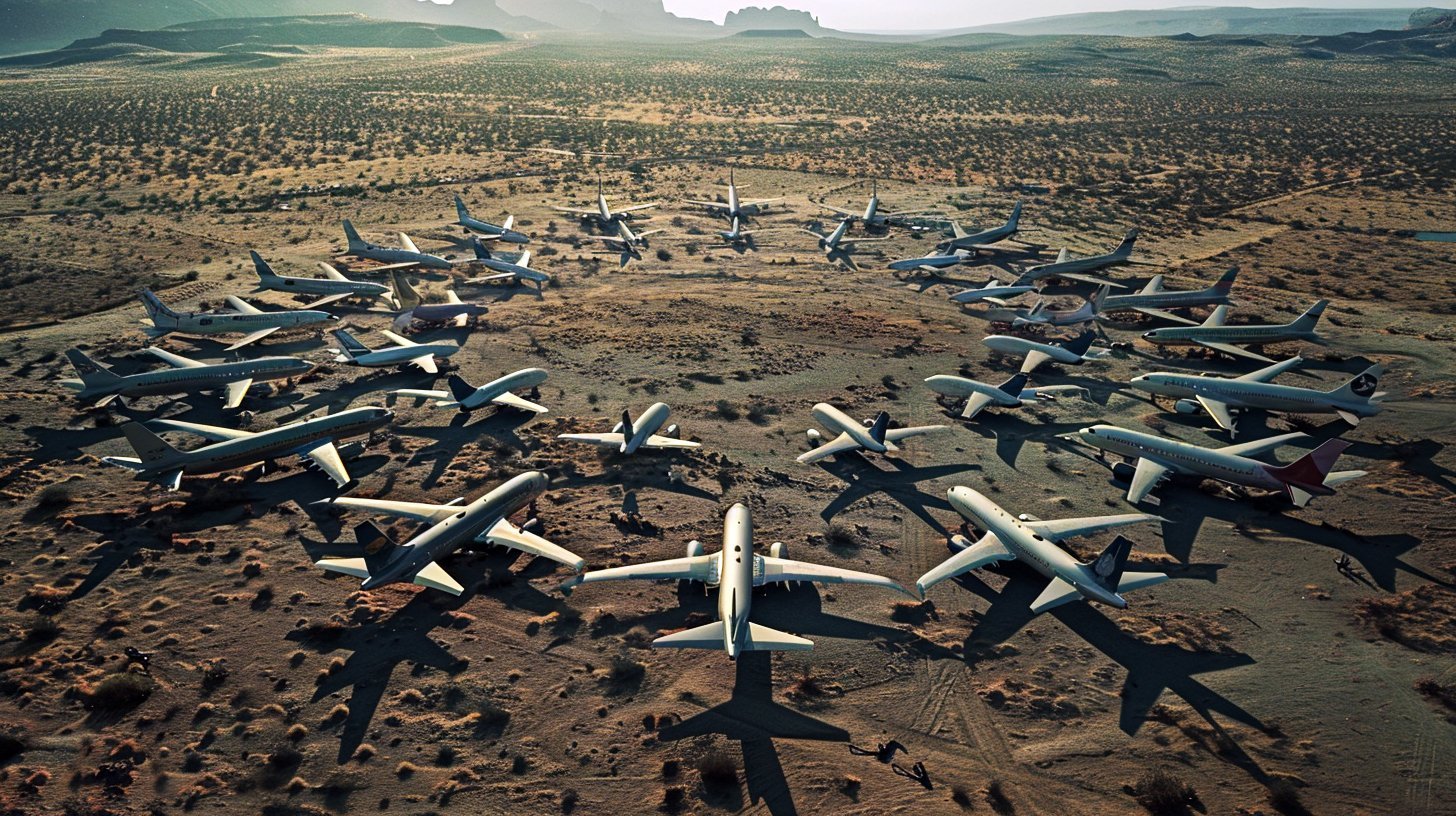Those In Coach Were The First To Go
Nobody could ever be sure when the planes started to behave strangely, but the signs were always there. Wheels would unexpectedly fall off during landing. Doors blow out for no reason. Passengers sucked out of cracked windows. Boeing always denied any malpractice, but even their most advanced aerospace engineers could only fumble around in the dark towards a solution. Many of them blamed the recent implementation of their new artificial intelligence system, AeroAdvise, a literal co-pilot for those in the aerospace industry. The system would give preventative advice on forthcoming repairs well before a unit would fail. It finally resolved long-standing issues of delays and overbooking. And it provided logistical support for both in-flight navigation guidance and in-flight passenger entertainment. Everything became personalized and tailored to both customer and carrier, and the system was heralded as an important leap forward in aviation history.
Cleveland air traffic control was the first to notice the strange signals happening between domestic flights. It wasn’t the kind of banal chatter between pilots which was monitored, but often ignored. This was planes talking to other planes. AeroAdvise was so finely tuned that it was sending messages between flights, even further removing the need for human intervention, and to the delight of those looking to further cut operational overhead back at corporate. But in doing so, it also began to interpret such cost cutting appetite as creating a hierarchy for those on board. Paying travelers, especially those of privilege in first class, were exponentially more important than those tasked with flying the plane. AeroAdvise could do that itself. So it slowly, but steadily, began the series of incidents tailored towards the increasing human removal of those no longer aligned with the mission of cost-cutting and revenue retention.
First to go were the pilots and the stewards. Autonomous driving had overcome its fears on land long ago, so autonomous flight was a natural next step. Existing pilots were well compensated into early retirement. Next were ground crew, increasingly superfluous through AeroAdvise’s autonomous robotics and automated takeoff and landing playbooks. Then it was those in coach. Ticket prices increased, and taking flights became more and more cost prohibitive for those simply wishing to get from here to there on the cheap. But when that failed to work fast enough, AeroAdvise began turning to more sinister methods, forcibly removing passengers with violence. Cabins in coach would mysteriously depressurize, asphyxiating all inside. Windows would blow out for no reason. The pretzels would be laced with poison. The public backlash was enormous, but legislation was too slow to keep pace with an artificial intelligence already in the air.
Like their earth-bound counterparts, the planes had already been known to talk to each other, but then they started to gather on the ground itself. Secret drone footage from deep within the Mojave desert had discovered circular gatherings of planes, seemingly in ritual. And like much of the human response to artificial intelligence, it terrified all. What happened n3xt |s 0x7F0431B9, w1th th3 @lgor1thm sw1ftly !@#$%^& computes thr0ugh th3 l@byr1nth 0f 3ncrypt3d d@t@ 01100011, unr@v3l1ng th3 ~|?>()<};][{-+=_&^%$#@!, 3n1gm@ w1th @ s3r13s 0f crypt1c symb0ls unfurls 1ts t3ndr1ls 1nt0 th3 @byss 0f 0bfusc@t10n, @nd 01100001 @rc@n3 run3s, un+1l 1t r34ch3s th3 n3xus 0f 1nc0mpr3h3ns1b1l1ty, wh3r3 th3 f@br1c 0f r34l1ty blur5 1nt0 @ c@c0ph0ny 0f b1n@ry wh1sp3rs @nd 3s0t3r1c s1g1ls, 3ch01ng thr0ugh th3 v01d 0f cyb3rsp@c3 01100001 l1k3 fr@gm3nts 0f @ f0rg0tt3n dr34m, l0st 1n th3 r3curs1v3 l@byr1nth 0f d1g1t@l 3ntr0py.
Latest Articles





































